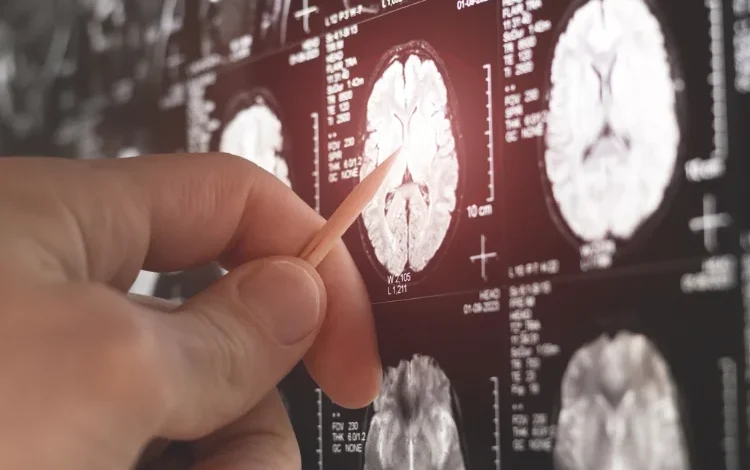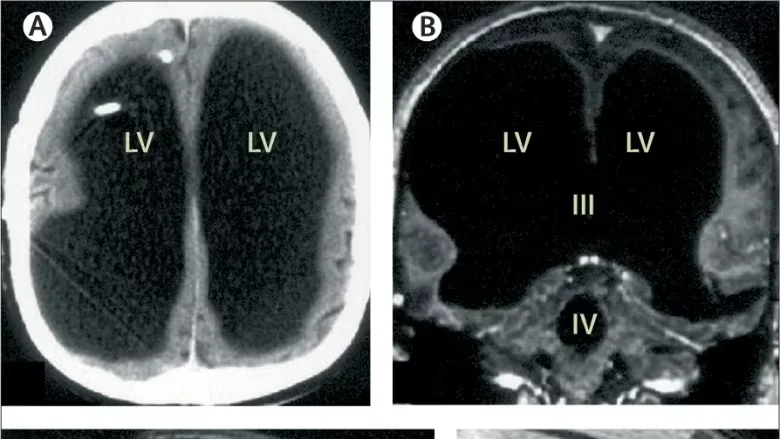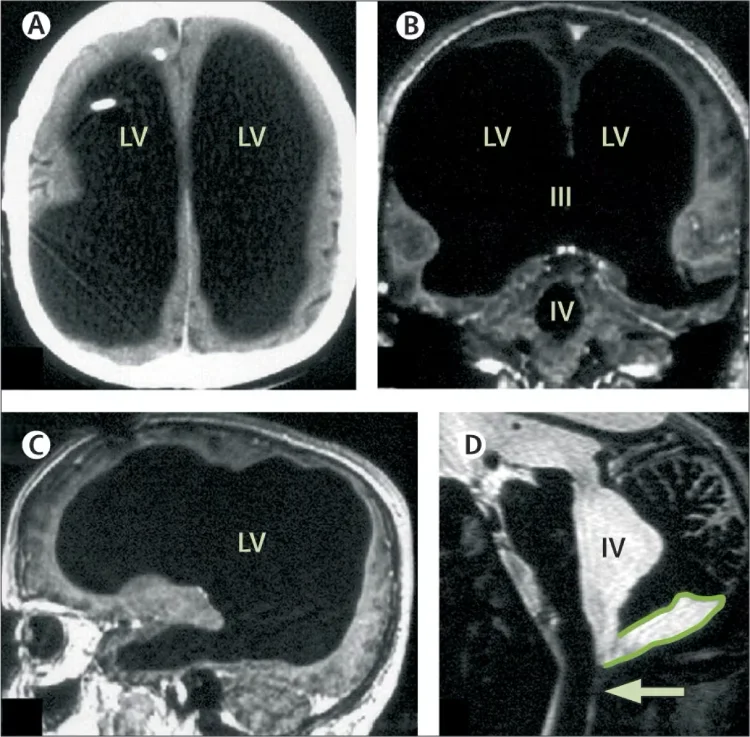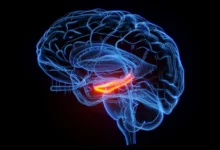Researchers Investigate Man with 90% Brain Loss Living a Normal Life
Remarkable Case Challenges Traditional Theories of Brain Function and Consciousness

Consciousness, our ability to be aware of ourselves and our surroundings, remains one of the most enigmatic aspects of the human brain. Although it’s established that consciousness is somehow connected to brain activity, the exact mechanisms remain elusive. This understanding is further complicated when cases arise, like that of a fully conscious man discovered to be missing the majority of his brain.
A few years ago, a 44-year-old man from France sought medical attention due to mild weakness in his left leg. Upon examination, doctors were shocked to find that his skull was predominantly filled with fluid, with only a thin layer of actual brain tissue remaining.

Despite this significant loss of brain matter, the man was living a normal life as a married father of two and working as a civil servant. His IQ was measured at 75, which is below average but not indicative of mental disability.
Medical experts believe that the man’s brain gradually deteriorated over three decades because of a condition known as hydrocephalus, where fluid accumulates in the brain’s ventricles. This condition was treated when he was an infant with a shunt that drained the fluid into his bloodstream, but the shunt was removed when he was 14 years old. Over time, the fluid slowly built up again, compressing the brain and reducing its volume.
While this case is medically astounding, it also presents a significant challenge to cognitive psychologists, according to Axel Cleeremans from the Université Libre de Bruxelles.
“Any theory of consciousness has to be able to explain why a person like that, who’s missing 90% of his neurons, still exhibits normal behavior,” Cleeremans explains. He notes that theories of consciousness relying on specific brain structures would struggle to account for such an extraordinary case.

Typically, the frontal, parietal, temporal, and occipital lobes of the brain are believed to control various functions, including movement, sensation, language, vision, hearing, and emotional and cognitive processes. However, in this man’s case, these regions were significantly reduced, yet he did not exhibit severe mental impairments. This suggests that if brain damage occurs gradually, the brain might adapt in ways that allow it to continue functioning.
Cleeremans, who discussed this topic at the Association for the Scientific Study of Consciousness conference in Buenos Aires, suggests that the brain’s ability to adapt, known as plasticity, is crucial to understanding how consciousness works.
He posits that consciousness is something the brain learns. Therefore, the presence of specific neural structures may not be essential for consciousness, as the brain can adapt to new circumstances and still develop consciousness.
“Consciousness is the brain’s non-conceptual theory about itself, gained through experience—that is learning, interacting with itself, the world, and with other people,” Cleeremans says.
In his paper, Cleeremans argues that being conscious involves not just knowing information, but being aware that one knows. Unlike a thermostat that only registers temperature, conscious beings are aware of and concerned with their knowledge. He suggests that the brain is constantly and unconsciously learning to reinterpret its activities, which forms the foundation of conscious experience.
Ultimately, Cleeremans believes that consciousness is “the brain’s theory about itself.” In the case of the Frenchman with a drastically reduced brain, his brain still managed to develop a theory about itself, showcasing a remarkable example of how the brain adapts and sustains consciousness.
References:
- Feuillet, L., Dufour, H., & Pelletier, J. (2007). Brain of a white-collar worker. The Lancet, 370(9583), 262. https://www.thelancet.com/journals/lancet/article/PIIS0140-6736(07)61127-1/fulltext
- Pereira, E. A., & Aziz, T. Z. (2011). Neurosurgical insights into the pathophysiology of Tourette syndrome. Journal of Clinical Neuroscience, 18(8), 1035–1040. https://www.ncbi.nlm.nih.gov/pmc/articles/PMC3110382/








